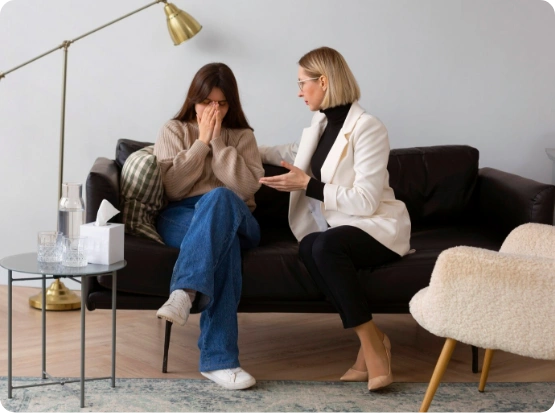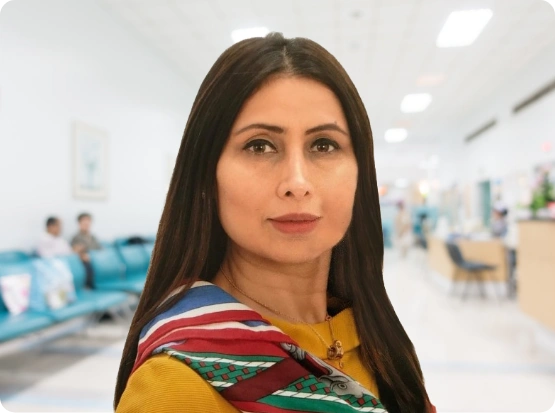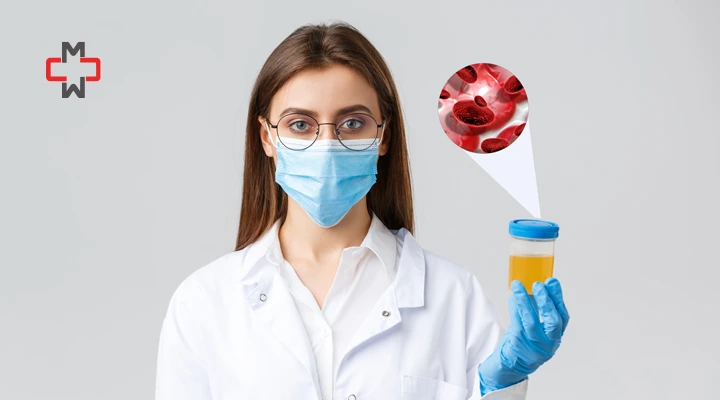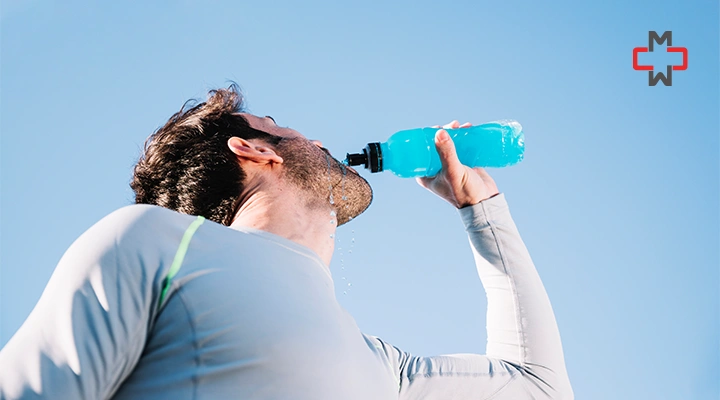Start Your Healing Today
Anxiety and Depression Treatment in Manhattan
Find Relief. Reclaim Your Life. Thrive Again.
At Manhattan Medical Arts, we specialize in providing anxiety treatment and depression care that addresses the full spectrum of emotional and mental health challenges.
We understand the heavy toll mental health conditions like anxiety and depression can take on your daily life — and we’re committed to helping patients treat anxiety disorders with the most effective, personalized approaches available.
Led by trusted experts like Primary Care Physician Syra Hanif, M.D. and Mental Health Professional Uzma Naeem, M.D., our care is built around you and your unique needs.
Why Patients Trust Manhattan Medical Arts
For Mental Health Care
With over 25 years of combined experience, our team has helped thousands manage anxiety disorders, depression symptoms, and other mental health conditions.
Expert-Led,
Results-Driven Care
Our physicians are recognized by the American Psychiatric Association and follow standards outlined in the Diagnostic and Statistical Manual of Mental Disorders (DSM-5).
Accurate Diagnoses,
Life-Changing Results
Using medical history reviews, psychological assessments, and blood tests, we deliver accurate diagnosis and build the
right treatment plan from
day one.
Personalized Compassionate Care
Every plan is customized — led by specialists like Uzma Naeem, M.D. for expert psychiatric and emotional
wellness.
Facing Anxiety That Won’t Go Away?
We Can Help
Anxiety is a serious mental health condition that, if untreated, can escalate into severe anxiety — affecting health, careers, and relationships.
Millions of people with anxiety disorders live with constant worry without proper support. When symptoms interfere with your quality of life, professional help is essential.
We offer anxiety counseling as an immediate, supportive solution to help you take the first steps toward emotional balance.
Recognize Anxiety
Symptoms Early
Common anxiety symptoms include:
- Muscle tension and restlessness
- Trouble sleeping
- Racing thoughts and fear
- Poor focus
- Persistent fatigue
- Physical symptoms like nausea, dizziness, chest pain
If untreated, anxiety worse over time — impacting every part of life.


Anxiety Disorders We
Expertly Treat
Generalized Anxiety Disorder (GAD)
Persistent, uncontrollable worry.
Panic
Disorder
Sudden, overwhelming fear.
Social Phobia (Social Anxiety Disorder)
Paralyzing fear of social interactions.
Specific
Phobias
Fear of objects or situations.
Separation
Anxiety
Emotional distress around separation.
We specialize in helping patients manage anxiety disorders and prevent escalation to severe anxiety.


How We Diagnose Anxiety and Build Your Recovery Plan
Under the leadership of Mental Health Expert Uzma Naeem, M.D., our evaluation process includes:
- Full medical history review
- Psychological testing using the Statistical Manual
- Screening for coexisting physical conditions
We prioritize early and accurate approaches to diagnose anxiety and build your customized recovery roadmap.
Proven Treatments for Lasting Recovery
Our proven anxiety disorder treatments include:
- Cognitive Behavioral Therapy (CBT)
- Exposure Therapy
- Relaxation Techniques
- Medication Management (such as Selective Serotonin Reuptake Inhibitors (SSRIs)
- Support Groups
We’re not just treating symptoms — we are fully treating mental health conditions to achieve lifelong results.


Finding Hope
Through Depression Treatment
Depression doesn’t have to control your life. If depression symptoms are affecting your happiness, energy, or focus, it’s time to seek help.
Watch for These
Depression Symptoms
Persistent
Sadness
Loss of Joy in Daily Activities
Changes in Sleep
and Appetite
Chronic
Fatigue
Feelings of Guilt or Hopelessness
Suicidal
Ideation
Physical Symptoms Like Body Aches Or Fatigue
If these depression symptoms worsen, immediate care becomes critical.
Specialized Depression
Care Programs
Major Depressive Disorder
Persistent Depressive Disorder
Depression With Atypical Features
We often treat patients experiencing anxiety and depression together, with carefully integrated therapy paths.
Our depression therapy sessions are tailored to fit each individual’s emotional needs, helping to rebuild self-confidence and joy.


How We Diagnose and
Treat Depression
Led by Psychiatrist Uzma Naeem, M.D., our team conducts:
- Medical history analysis
- Emotional evaluations using the statistical manual
- Physical assessments to rule out underlying related issues
A fast and accurate diagnosis leads to a highly effective treatment plan.
Depression Treatment
Options
- Talk Therapy (CBT, IPT, Behavioral Activation)
- Medications (including Selective Serotonin Reuptake Inhibitors (SSRIs))

- Electroconvulsive Therapy (ECT) for severe, resistant cases
- Support Groups for communal healing
Searching for depression treatment near me? Manhattan Medical Arts offers immediate support, helping you start treatment within days.
Our highly specialized depression centers in NYC also ensure that even the most complex cases receive the right care pathway.
Comprehensive Mental Health Services At
Manhattan Medical Arts
At Manhattan Medical Arts, we deliver comprehensive, compassionate care through a full range of services.
Whether you’re looking for therapy centers near me or expert help at a trusted mental health clinics NYC, we offer:


- Therapy Services for anxiety, depression, and trauma recovery
- Mental Health Therapy Near Me for easy, local access
- Mental Health Therapists Nearby for crisis and routine care
- Psychiatric Services including medication and diagnosis
- Anxiety Counseling tailored to your emotional challenges
- Depression Recovery Programs and supportive group therapies
We proudly provide mental health services near me in Manhattan — so no matter where you are, healing is within reach.
Take The First Step Toward
Emotional Freedom
Ignoring depression symptoms or severe anxiety can cause devastating impacts on health and happiness.
Timely intervention at a trusted mental health provider can transform your future.
At Manhattan Medical Arts, our mission is simple: treating mental health conditions with expertise, compassion, and hope.
Frequently Asked Questions
What anxiety disorder treatments do you offer?
We deliver leading-edge anxiety disorder treatments, including therapy, medications, and exposure techniques — each plan customized for the individual.
Do you treat anxiety and depression together?
Yes. Many patients need support for anxiety and depression together, and our team builds personalized, integrated recovery plans.
Can I find quick therapy services at Manhattan Medical Arts?
Absolutely. Our therapy services can be booked online or in-person at our therapy centers near me across Manhattan.
Are there mental health therapists nearby for immediate help?
Yes! Our mental health therapists nearby specialize in rapid-response and personalized emotional care.
Latest Blog Posts
Making primary care accessible









